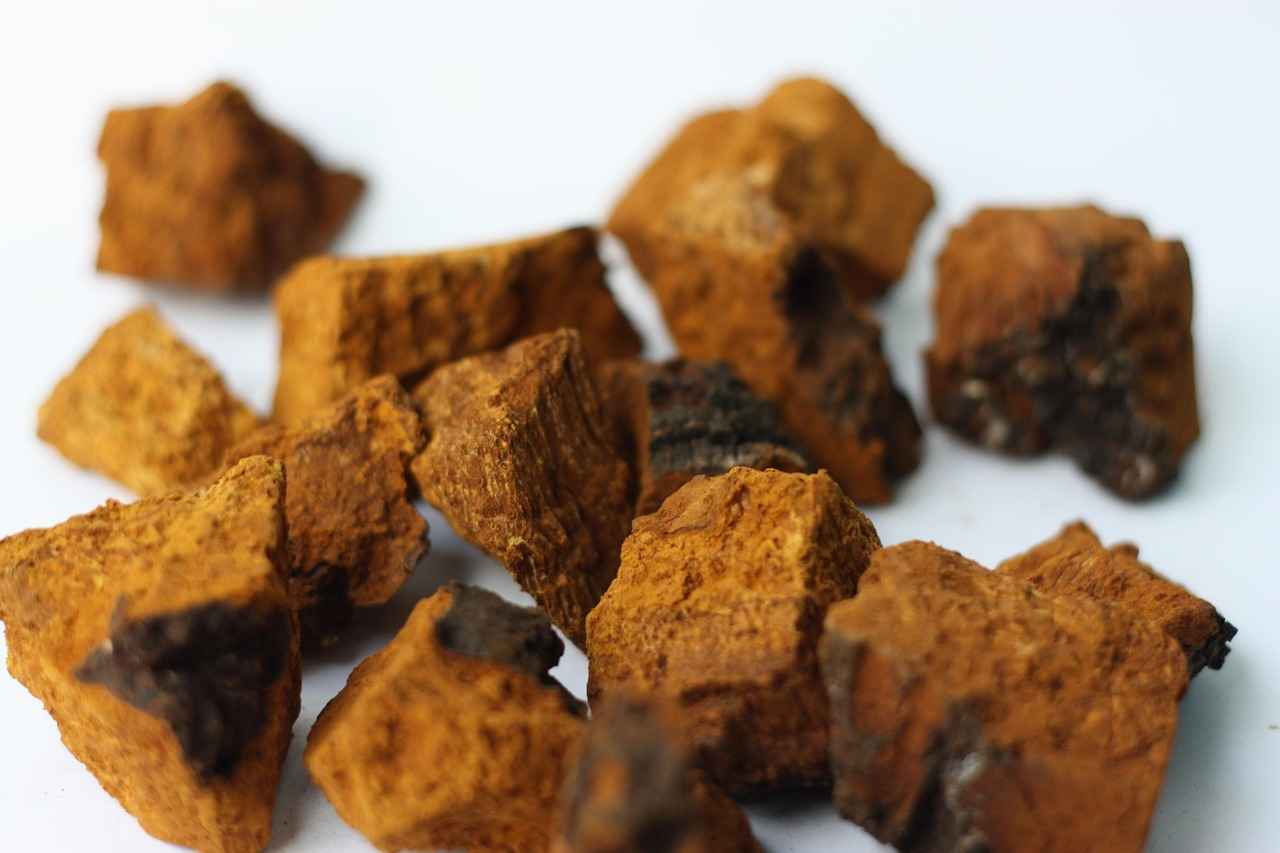This article explores the various immune-boosting benefits of Echinacea, a popular herbal remedy. We will delve into its history, active compounds, scientific evidence, and practical applications for enhancing health.
What is Echinacea?
Echinacea is a flowering plant belonging to the daisy family, widely recognized for its medicinal properties. Traditionally used by Native American tribes, Echinacea has been valued for centuries as a remedy for various ailments. There are several species, with Echinacea purpurea being the most commonly used for health benefits.
How Echinacea Boosts the Immune System
Research suggests that Echinacea enhances immune function by stimulating the production of immune cells such as macrophages and natural killer cells. This section discusses how these mechanisms help in increasing the body’s resistance to infections.
Active Compounds in Echinacea
- Alkamides: Known for their anti-inflammatory properties, these compounds play a crucial role in immune modulation.
- Polysaccharides: These complex carbohydrates enhance the activity of immune cells and are vital for a robust immune response.
- Flavonoids: Present in Echinacea, flavonoids possess antioxidant properties that contribute to overall health.
Scientific Evidence Supporting Echinacea
Numerous studies have shown that Echinacea can reduce the duration and severity of colds. A systematic review indicated that Echinacea may decrease the risk of developing respiratory infections.
Forms of Echinacea Available
- Echinacea Tea: A soothing way to consume Echinacea, this tea can be prepared by steeping dried Echinacea flowers in hot water.
- Echinacea Capsules and Tinctures: These forms offer concentrated doses, making them a convenient option for daily use.
Potential Side Effects and Considerations
While Echinacea is generally safe, some individuals may experience allergic reactions, such as rashes or difficulty breathing. It’s important to consult a healthcare professional, especially if you are taking other medications.
How to Incorporate Echinacea into Your Routine
Incorporating Echinacea can be beneficial for immune support. Recommended dosages vary by form; typically, 300-500 mg of extract taken three times a day is suggested. Timing can also enhance its benefits, especially during cold and flu season.
Conclusion: The Role of Echinacea in Immune Health
Echinacea serves as a valuable ally in supporting immune health. By understanding its benefits and incorporating it into your wellness strategy, you can enhance your immune system’s resilience.

What is Echinacea?
Echinacea is a remarkable flowering plant that belongs to the daisy family, scientifically known as Asteraceae. Renowned for its impressive medicinal properties, Echinacea has been a staple in traditional medicine for centuries. This article will explore the rich origins of Echinacea, the various types available, and its historical applications in healing practices.
The origins of Echinacea can be traced back to the indigenous peoples of North America, who utilized the plant for its numerous health benefits. They recognized its potential in treating a variety of ailments, including infections, inflammation, and even pain relief. Echinacea was often used in the form of poultices or teas, showcasing its versatility in traditional healing.
There are several species of Echinacea, with the most commonly used being Echinacea purpurea, Echinacea angustifolia, and Echinacea pallida. Each species possesses unique properties and varying levels of active compounds that contribute to their health benefits. For instance, Echinacea purpurea is widely favored for its immune-boosting effects, making it a popular choice in supplements and herbal remedies.
Historically, Echinacea has been employed in various cultures for its therapeutic qualities. In the 19th century, it gained popularity in the United States as a treatment for infections and was often included in medicinal formulations. Its use has evolved over time, leading to extensive research into its effectiveness and potential health benefits.
In conclusion, Echinacea is not just a beautiful flowering plant; it is a powerful herbal remedy with a rich history and numerous applications in traditional medicine. Understanding its origins and types can help individuals make informed choices about incorporating Echinacea into their health regimen.

How Echinacea Boosts the Immune System
Echinacea has garnered attention for its potential to enhance the immune system, making it a popular choice for those seeking to bolster their health. This section will explore the intricate mechanisms through which Echinacea supports immune function and its possible role in increasing resistance to infections.
The primary way Echinacea is believed to boost the immune system is by stimulating various immune cells, including macrophages, natural killer cells, and T-lymphocytes. These cells play crucial roles in identifying and combating pathogens, such as bacteria and viruses. Echinacea appears to enhance the activity of these cells, thereby fortifying the body’s defense mechanisms.
One of the key components in Echinacea is polysaccharides, which are complex carbohydrates that can activate immune cells. These polysaccharides help in increasing the production of cytokines, which are signaling molecules that facilitate communication between immune cells. This process not only boosts the immune response but also helps in regulating inflammation, ensuring that the immune system responds appropriately to threats.
Additionally, Echinacea contains alkamides, which are known for their anti-inflammatory properties. These compounds contribute to immune modulation, helping to balance the immune response. By reducing excessive inflammation, alkamides can help prevent the immune system from overreacting, which is particularly beneficial in autoimmune conditions.
Research has shown that Echinacea may also have a role in preventing upper respiratory infections. Some studies suggest that individuals who take Echinacea may experience a shorter duration and reduced severity of cold symptoms. This evidence highlights Echinacea’s potential as a natural remedy for enhancing overall immune health.
In conclusion, Echinacea’s ability to stimulate immune cells, regulate inflammation, and potentially shorten the duration of infections makes it a valuable ally in maintaining immune health. As more research emerges, understanding the full extent of Echinacea’s benefits will continue to evolve, but its historical use and current popularity underscore its importance in herbal medicine.
Active Compounds in Echinacea
Echinacea, a renowned herbal remedy, is celebrated for its ability to bolster the immune system. The effectiveness of Echinacea can be attributed to its rich composition of bioactive compounds, which include alkamides, polysaccharides, and flavonoids. Each of these compounds plays a unique role in promoting immune health and overall wellness.
| Compound | Role in Immune Health |
|---|---|
| Alkamides | Alkamides are known for their anti-inflammatory properties, aiding in the modulation of immune responses. They help reduce inflammation, which can enhance the body’s ability to fight off infections. |
| Polysaccharides | These complex carbohydrates are vital for activating immune cells, enhancing their activity and effectiveness. Polysaccharides stimulate the production of cytokines, which are essential for immune signaling. |
| Flavonoids | Flavonoids possess antioxidant properties that protect immune cells from oxidative stress. They also support the overall immune response by modulating inflammatory pathways. |
The combination of these compounds creates a synergistic effect that maximizes Echinacea’s potential in supporting immune function. Research has shown that taking Echinacea can lead to a measurable increase in the activity of immune cells, thereby enhancing the body’s ability to resist infections.
In summary, the active compounds in Echinacea—alkamides, polysaccharides, and flavonoids—work together to promote a robust immune response. Understanding their individual contributions helps to appreciate how this herbal remedy can be a valuable addition to one’s health regimen.
Alkamides
are a group of bioactive compounds found in Echinacea that play a significant role in its therapeutic effects, particularly concerning immune modulation. These compounds are recognized for their anti-inflammatory properties, which are crucial in managing immune responses. This section will delve into how alkamides contribute to immune health and their overall significance in enhancing the effectiveness of Echinacea.
One of the primary ways alkamides function is by interacting with cannabinoid receptors in the body, specifically the CB2 receptors, which are predominantly located in the immune system. This interaction can lead to a reduction in inflammation, thereby promoting a balanced immune response. By modulating inflammatory pathways, alkamides help in preventing excessive immune reactions that can lead to chronic conditions.
Furthermore, research indicates that alkamides may enhance the production of cytokines, which are signaling proteins that facilitate communication between immune cells. This increased cytokine production can lead to improved activation of immune cells such as macrophages and T-cells, enhancing the body’s ability to fight off infections and diseases.
In addition to their immune-modulating effects, alkamides also exhibit antioxidant properties, which help protect cells from oxidative stress. This is particularly important as oxidative stress can impair immune function and contribute to various health issues. By reducing oxidative damage, alkamides support overall immune health and improve the body’s resilience against pathogens.
In summary, alkamides are vital components of Echinacea that contribute significantly to its immune-boosting properties. Their ability to modulate inflammation, enhance immune cell activity, and provide antioxidant benefits underscores their importance in the effectiveness of Echinacea as a natural health supplement. Understanding these mechanisms can help individuals make informed decisions about incorporating Echinacea into their wellness routines.
Polysaccharides
are complex carbohydrates that play a vital role in enhancing the immune response. These molecules are not only crucial for energy storage and structural integrity in plants but also significantly influence the functioning of the immune system. This section will delve into how polysaccharides enhance the activity of immune cells and promote overall health.
One of the primary ways polysaccharides support the immune system is by stimulating the activity of immune cells, such as macrophages and lymphocytes. Macrophages are known for their ability to engulf pathogens and present antigens, while lymphocytes are pivotal in orchestrating the adaptive immune response. Polysaccharides can enhance the phagocytic activity of macrophages, making them more effective at identifying and eliminating foreign invaders.
Moreover, polysaccharides can act as immune modulators. They help regulate the immune response, ensuring that it is neither too weak nor overactive. This modulation is crucial in preventing autoimmune diseases, where the immune system mistakenly attacks the body’s own cells. By maintaining this balance, polysaccharides contribute to a healthier immune system.
Additionally, polysaccharides can enhance the production of cytokines, which are signaling proteins that mediate and regulate immunity, inflammation, and hematopoiesis. Increased cytokine production promotes communication between immune cells, leading to a more coordinated response to infections.
Research has shown that polysaccharides derived from various sources, including mushrooms and certain plants, can significantly boost the immune response. For instance, polysaccharides from Echinacea have been extensively studied for their immunomodulatory effects, demonstrating the potential of these compounds in supporting health.
In conclusion, polysaccharides are essential components that enhance immune cell activity and support overall health. By understanding their mechanisms and benefits, individuals can make informed decisions about incorporating polysaccharide-rich foods and supplements into their diets to promote optimal immune function.
Scientific Evidence Supporting Echinacea
Over the years, Echinacea has garnered significant attention from researchers seeking to understand its potential role in immune support. Numerous scientific studies have been conducted to evaluate the effectiveness of Echinacea as a health supplement, with varying results that contribute to the ongoing debate about its efficacy.
One of the most comprehensive reviews published in The Cochrane Database of Systematic Reviews analyzed 24 studies involving over 4,000 participants. The findings suggested that Echinacea may reduce the duration and severity of colds when taken at the onset of symptoms. Participants who took Echinacea reported a decrease in the number of days they experienced cold symptoms, indicating its potential as a preventive measure.
Another study, published in the Journal of Clinical Pharmacy and Therapeutics, focused on the specific compounds within Echinacea that contribute to its immune-boosting properties. Researchers identified that polysaccharides and alkamides play crucial roles in enhancing the activity of immune cells, particularly macrophages and natural killer cells. These immune cells are vital for combating infections and may explain why Echinacea is often recommended during cold and flu season.
Furthermore, a meta-analysis highlighted the importance of timing and dosage in the effectiveness of Echinacea. It concluded that higher doses taken at the first sign of illness tended to yield better outcomes. However, the authors cautioned that more rigorous studies are needed to establish standardized dosages and formulations.
Despite the promising findings, some studies have shown minimal or no significant effects, leading to mixed opinions among healthcare professionals. It is essential for individuals considering Echinacea for immune support to consult with a healthcare provider, especially if they have underlying health conditions or are taking other medications.
In summary, while the scientific evidence supporting Echinacea’s role in immune health is encouraging, it remains a topic of ongoing research. Future studies could help clarify its effectiveness and optimize its use as a natural health supplement.

Forms of Echinacea Available
Echinacea is a versatile herbal remedy that comes in several forms, each offering unique benefits and applications for health. Understanding these different forms can help you choose the right one to suit your needs.
| Form | Description | Benefits | Considerations |
|---|---|---|---|
| Echinacea Tea | A soothing beverage made by steeping Echinacea leaves and flowers. | Promotes relaxation and provides a gentle immune boost. | May require multiple cups for effective dosage. |
| Echinacea Capsules | Convenient, pre-measured doses of Echinacea in pill form. | Offers a concentrated dose for those on the go. | May not be suitable for individuals who have difficulty swallowing pills. |
| Echinacea Tinctures | Liquid extracts that are highly concentrated and easily absorbed. | Fast-acting and can be mixed with water or juice. | Alcohol-based tinctures may not be suitable for everyone. |
When selecting a form of Echinacea, consider your lifestyle and preferences:
- If you enjoy warm beverages, tea might be the best choice for you.
- For those seeking convenience, capsules offer an easy option.
- If you prefer a quick and potent effect, tinctures are ideal.
It’s important to note that the effectiveness of Echinacea can vary based on the form and quality of the product. Always consult with a healthcare professional to determine the best form and dosage for your individual health needs.
Echinacea Tea
is not only a delightful beverage but also a powerful herbal remedy that has gained popularity for its numerous health benefits. This section will guide you through the steps to prepare this tea and explore its potential health advantages.
To make , follow these simple steps:
- Ingredients: You will need dried Echinacea leaves and flowers (about 1-2 teaspoons), water (1 cup), and honey or lemon for flavor, if desired.
- Boil the Water: Start by bringing the water to a boil in a pot or kettle.
- Add Echinacea: Once the water is boiling, add the dried Echinacea to the pot.
- Steep: Remove the pot from heat and let the Echinacea steep for about 10-15 minutes. This allows the beneficial compounds to infuse into the water.
- Strain: After steeping, strain the tea into a cup to remove the plant material.
- Flavor: Add honey or lemon to taste, if desired, and enjoy your warm cup of Echinacea tea!
The potential health benefits of are numerous:
- Immune Support: Echinacea is widely recognized for its ability to enhance the immune system, helping to fend off colds and infections.
- Anti-Inflammatory Properties: The herb contains compounds that may reduce inflammation, providing relief for conditions such as sore throats and respiratory issues.
- Antioxidant Effects: Echinacea is rich in antioxidants, which help combat oxidative stress and may protect against chronic diseases.
In conclusion, preparing is a simple process that can yield significant health benefits. By incorporating this herbal remedy into your daily routine, you may enhance your immune system and overall well-being.
Echinacea Capsules and Tinctures
When it comes to supporting the immune system, Echinacea is a well-known herbal remedy that can be found in various forms. Among these, capsules and tinctures stand out due to their concentrated doses and ease of use. This section will explore the advantages and considerations of using these forms for immune support.
| Form | Advantages | Considerations |
|---|---|---|
| Capsules |
|
|
| Tinctures |
|
|
Both forms of Echinacea offer their unique benefits. Capsules provide a straightforward and mess-free option, making them ideal for those with busy lifestyles. On the other hand, tinctures allow for quick absorption, which can be beneficial during times when immediate immune support is needed.
However, it is essential to consider individual preferences and health conditions when choosing between the two. Always consult with a healthcare professional to determine the best option for your specific needs.
In summary, whether you opt for capsules or tinctures, incorporating Echinacea into your wellness routine can provide valuable support for your immune system.

Potential Side Effects and Considerations
While Echinacea is generally regarded as safe for the majority of individuals, it is important to be aware that some people may experience side effects. This section will explore the potential adverse effects associated with Echinacea and identify specific groups of individuals who should exercise caution or avoid its use altogether.
- Allergic Reactions: One of the most common concerns regarding Echinacea is the possibility of allergic reactions. Individuals who are allergic to plants in the Asteraceae family, which includes ragweed, chrysanthemums, marigolds, and daisies, may be at a higher risk for experiencing allergies to Echinacea. Symptoms can range from mild to severe and may include:
- Skin rashes
- Itching
- Swelling
- Difficulties in breathing
If any of these symptoms occur after consuming Echinacea, it is crucial to seek medical attention immediately.
- Interactions with Medications: Echinacea may interact with certain medications, potentially affecting their efficacy. For instance, it can influence the metabolism of drugs processed by the liver. Individuals taking medications such as immunosuppressants or those for blood sugar control should consult a healthcare professional before using Echinacea, as it may alter the effects of these drugs.
- Autoimmune Disorders: People with autoimmune disorders, such as lupus or rheumatoid arthritis, should be cautious when considering Echinacea. Since Echinacea stimulates the immune system, it may exacerbate symptoms or interfere with treatment plans.
- Pregnant and Nursing Women: There is limited research on the safety of Echinacea during pregnancy and lactation. Therefore, it is advisable for pregnant or nursing women to avoid its use unless under the guidance of a healthcare provider.
In conclusion, while Echinacea offers numerous health benefits, it is essential to be aware of potential side effects and interactions. Consulting with a healthcare professional can help ensure safe and effective use of this herbal remedy.
Allergic Reactions
to Echinacea can occur in some individuals, leading to a range of symptoms that may require attention. Understanding these reactions is essential for anyone considering the use of this popular herbal remedy.
Echinacea, known for its immune-boosting properties, is generally safe for most people. However, can manifest in various ways. Common signs include:
- Skin Reactions: These may include rashes, hives, or itching.
- Respiratory Issues: Symptoms like wheezing, difficulty breathing, or nasal congestion may occur.
- Gastrointestinal Distress: Some individuals may experience stomach cramps, nausea, or vomiting.
If you suspect that you are experiencing an allergic reaction to Echinacea, it is crucial to take immediate action:
- Discontinue Use: Stop taking Echinacea immediately to prevent further exposure.
- Seek Medical Attention: If symptoms are severe, such as difficulty breathing or swelling of the face and throat, call emergency services right away.
- Consult a Healthcare Professional: Even if symptoms are mild, it is advisable to consult a healthcare provider for guidance and potential allergy testing.
It is important to note that individuals with allergies to plants in the Asteraceae family, such as ragweed, may be at a higher risk for allergic reactions to Echinacea. Therefore, those with known allergies should exercise caution and consider alternatives.
In summary, while Echinacea can be beneficial for immune support, awareness of potential allergic reactions is vital. By recognizing the signs and knowing how to respond, you can ensure a safer experience with this herbal supplement.
Interactions with Medications
Echinacea is a widely used herbal remedy, celebrated for its potential to bolster the immune system. However, it is crucial to be aware that Echinacea may interact with certain medications, which can affect their efficacy or lead to unwanted side effects. This section aims to provide insights into these potential drug interactions and underscores the importance of consulting a healthcare professional before incorporating Echinacea into your health regimen.
Research indicates that Echinacea can influence the metabolism of various drugs. It primarily affects the cytochrome P450 enzyme system, which is responsible for metabolizing many pharmaceuticals. Here are some key points regarding Echinacea’s interactions:
- Anticoagulants: Echinacea may enhance the effects of blood thinners such as warfarin, potentially increasing the risk of bleeding.
- Immunosuppressants: For individuals on medications that suppress the immune system, such as corticosteroids, Echinacea could counteract their effects, leading to unintended immune stimulation.
- Antiretroviral Drugs: Some studies suggest that Echinacea may interfere with the effectiveness of certain antiretroviral medications used in HIV treatment.
- Other Herbal Supplements: Combining Echinacea with other herbal supplements that have similar effects may amplify side effects or alter drug efficacy.
Given these interactions, it is imperative to consult with a healthcare professional or a knowledgeable herbalist before starting Echinacea, especially if you are currently taking medications or have underlying health conditions. A healthcare provider can help assess your individual situation and guide you on safe usage.
In summary, while Echinacea offers numerous health benefits, understanding its potential interactions with medications is essential for ensuring safe and effective use. Always prioritize your health by seeking professional advice.

How to Incorporate Echinacea into Your Routine
Incorporating Echinacea into your daily routine can significantly enhance your immune support and overall health. This section will provide practical tips on how to effectively use Echinacea in your health regimen, ensuring you maximize its benefits.
- Choose the Right Form: Echinacea is available in several forms, including teas, capsules, and tinctures. Depending on your preference, select a form that fits your lifestyle. For instance, if you enjoy herbal teas, Echinacea tea may be ideal for you.
- Recommended Dosages: Understanding the appropriate dosages is crucial. For Echinacea capsules, a typical dosage ranges from 300 to 500 mg, taken two to three times daily. If you prefer tinctures, follow the instructions on the label, as concentrations can vary.
- Timing Matters: The timing of your Echinacea intake can affect its efficacy. It is often recommended to start taking Echinacea at the first sign of illness or during seasonal changes when your immune system may need extra support. Consistency is key, so incorporate it into your daily routine.
- Combine with Other Immune-Boosting Practices: To maximize the benefits of Echinacea, consider combining it with other healthy practices. A balanced diet rich in fruits and vegetables, regular exercise, and adequate sleep can enhance your immune response.
- Consult with a Healthcare Professional: Before starting any new supplement, including Echinacea, it is wise to consult with a healthcare provider, especially if you are pregnant, nursing, or taking other medications.
In conclusion, incorporating Echinacea into your daily routine can be a simple yet effective way to bolster your immune system. By choosing the right form, adhering to recommended dosages, and combining it with other healthy habits, you can harness the full potential of this powerful herb.
Recommended Dosages
Understanding the appropriate dosages of Echinacea is essential for maximizing its effectiveness in supporting the immune system. Different forms of Echinacea—such as teas, capsules, and tinctures—require different dosages to achieve optimal health benefits.
Here are some general guidelines for recommended dosages based on the form of Echinacea:
| Form of Echinacea | Recommended Dosage | Notes |
|---|---|---|
| Echinacea Tea | 1-2 teaspoons of dried herb per cup of water, steeped for 10-15 minutes | Best consumed 2-3 times daily for immune support. |
| Echinacea Capsules | 300-500 mg, taken 2-3 times daily | Choose standardized extracts for consistent dosage. |
| Echinacea Tinctures | 1-2 ml, taken 2-3 times daily | Can be mixed with water or juice for easier consumption. |
It is important to note that these dosages may vary based on individual health conditions, age, and overall wellness. Therefore, consulting with a healthcare professional before starting any Echinacea regimen is advisable.
Additionally, timing and frequency of use can also impact the effectiveness of Echinacea. For example, taking Echinacea at the onset of cold symptoms may enhance its benefits. Overall, understanding the right dosage and usage can significantly contribute to its potential immune-boosting effects.
Timing and Frequency of Use
Understanding the timing and frequency of Echinacea intake is essential for maximizing its immune-boosting benefits. While this herbal remedy is widely recognized for its health advantages, knowing when and how often to take it can significantly enhance its effectiveness.
To start, it is advisable to begin taking Echinacea at the first sign of illness or when you feel your immune system may be compromised. This proactive approach can help your body mount a defense against potential infections. For individuals prone to seasonal illnesses, such as colds or flu, starting a regimen during the onset of colder months is beneficial.
In terms of frequency, most studies suggest taking Echinacea in cycles. A common recommendation is to take it for a period of 7 to 10 days, followed by a break of a few days before resuming. This cycling helps prevent the body from becoming accustomed to the herb, ensuring that it remains effective. For maintenance, taking Echinacea two to three times a day can provide ongoing support to your immune system.
Moreover, the form of Echinacea you choose can influence timing. For example, Echinacea tea can be enjoyed throughout the day, while capsules or tinctures might be more effective when taken at specific intervals. Always follow the manufacturer’s guidelines or consult with a healthcare professional to determine the most suitable approach based on your individual health needs.
In conclusion, integrating Echinacea into your routine requires careful attention to when and how often you take it. By starting early, adhering to recommended cycles, and choosing the right form, you can significantly enhance its immune-supporting benefits.

Conclusion: The Role of Echinacea in Immune Health
Echinacea has long been celebrated as a powerful herbal remedy, particularly in the realm of immune health. This remarkable plant, native to North America, has been utilized for centuries by indigenous peoples for its medicinal properties. As we delve into the numerous benefits of Echinacea, it becomes clear that incorporating this herb into your wellness strategy can be a wise choice.
The primary reason to consider Echinacea is its ability to boost the immune system. Research suggests that Echinacea works by stimulating the activity of various immune cells, including macrophages and natural killer cells. These immune cells play a crucial role in defending the body against pathogens, making Echinacea a valuable ally during cold and flu seasons.
Additionally, Echinacea contains several bioactive compounds such as alkamides, polysaccharides, and flavonoids, which contribute to its immune-boosting properties. Alkamides are known for their anti-inflammatory effects, while polysaccharides enhance immune cell activity, providing a comprehensive approach to supporting overall health.
Numerous scientific studies have investigated the efficacy of Echinacea. For instance, a meta-analysis of multiple trials showed that Echinacea could reduce the duration and severity of colds. This evidence underscores the importance of considering Echinacea as a reliable health supplement.
Moreover, Echinacea is available in various forms, including teas, capsules, and tinctures. Each form offers unique benefits, allowing you to choose what best fits your lifestyle. For those seeking convenience, capsules or tinctures may provide concentrated doses, while tea offers a soothing ritual.
In conclusion, Echinacea serves as a valuable ally in supporting immune health. By understanding its mechanisms, active compounds, and various forms, you can make an informed decision about incorporating Echinacea into your daily routine. Embrace this herbal powerhouse as part of your wellness strategy, and give your immune system the support it deserves.







